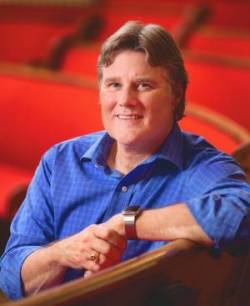Living in the now
Resurrecting our spirituality
By N. Graham Standish
Christians often crucify their faith by focusing so much on the cross that their faith becomes all about sin, judgment, and the past. True spirituality focuses on the resurrection, which immerses us in love, grace, and possibility. The cross was then. The resurrection is NOW. And NOW is where we truly meet Christ.
Christians have always emphasized the cross. Christian doctrine has always emphasized Jesus’ sacrifice on the cross as a monumental event. Much of our theological language is cross-language: “We are cleansed in the precious blood of the lamb.” “Our sins are nailed to the tree.” “When we come face-to-face with God, God sees only the face of Jesus…” Blah, blah, blah…
Okay, “blah, blah, blah” is too harsh. Cross-theology matters. Being forgiven for our sin is monumental, but it’s hard to build a strong spirituality and sense of wisdom based mostly on Jesus’ crucifixion and death. Why? Because the cross was only the seed, not the fruit. The resurrection is what allows fruit to blossom.
Many Christian traditions, from Roman Catholic to fundamentalist to Orthodox, have overemphasized the cross. In the process, they’ve developed a spirituality that overdramatizes sin and suffering. They’re rooted too much in the past—both the biblical past and our sinful past. When spirituality is rooted in the cross, we become obsessed with sinfulness—our own and others’. We constantly judge ourselves, or even worse, we constantly judge others. We get stuck. We see sin everywhere, and it becomes a
When spirituality is rooted in the cross, we become obsessed with sinfulness— our own and others’. We constantly judge ourselves, or even worse, we constantly judge others. We get stuck. We see sin everywhere, and it becomes a miry muck that makes it hard to move forward. We either become consumed with the gravity of our sin or scan the world judging others’ sin. We either live in fear of God judging us, or in gleeful anticipation of God judging others. So, our spirituality becomes rooted in securing our salvation rather than in sharing Christ’s love.
Cross spirituality is steeped in an ancient Jewish understanding of God, which the resurrection has pushed us beyond. It’s steeped in an idea that God has been so angry about our sin that God becomes frothily inconsolable. Only the sweet smell of a sacrificed dove, goat, or lamb can appease God. To appease God once and for all, Jesus allows himself to be sacrificed. The spirituality of the cross fits ancient Jewish theology well. But it’s not how we look at God today because we are resurrection people.
Isaiah, 500 years before Jesus, recognized that a sacrificial theology misunderstands God: “What to me is the multitude of your sacrifices? says the Lord; I have had enough of burnt offerings of rams and the fat of fed beasts; I do not delight in the blood of bulls, or of lambs, or of goats” (1:11). Micah declared that the sacrifice God wants is “to do justice, and to love kindness, and to walk humbly with your God” (6:8).
When we’re trapped in a cross theology, we become mired in a cycle of sin, repentance, forgiveness. It’s sin, repentance, forgiveness over and over again. When we live in a resurrection theology, we’re released from that cycle.
We can live in a world of love, hope, joy, grace, peace, and so much more. We face darkness yet see sparks of light. We face suffering yet we recognize grace and healing. We see the world’s turmoil yet we recognize Christ working through people everywhere to bring peace and hope. The resurrection is the real message because it says that nothing now has the power to keep God and love away from us—not people, not crosses, not death.
The cross is important, but too much emphasis on it can crucify us spiritually. When we form a resurrection spirituality it opens us to the Spirit of God’s grace everywhere. Real wisdom comes as we release ourselves from the cross and live in resurrection.
The Rev. N. Graham Standish, Ph.D., M.S.W. (www.ngrahamstandish.org) is the senior pastor of Calvin Presbyterian Church in Zelienople, Pennsylvania (www.calvinchurchzelie.org). He is the author of seven books on spirituality and church transformation and is an adjunct faculty member of Pittsburgh Theological and Tyndale Seminaries. He also has a background as a spiritual director, and as an individual and family therapist.